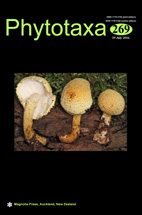Abstract
The development of plant taxonomy in South Africa from about 1600 to 2015 is reviewed, with emphasis on the main driving factors that have influenced the research direction, techniques used, and choice of taxonomic research topic. In addition, key personalities and important historical events are highlighted. The early scientific interest in the flora of South Africa and, by implication, its taxonomy was initially driven by curiosity. Exploration of plants for economic purposes especially for medicinal use and later, agriculture, drove the scientific development of botany and formed the foundation of formal botany in the country. Establishment of botanical gardens and herbaria influenced botanical research, in particular the field of taxonomy. Technological advances lead to increased modernisation of taxonomy as new sources of information derived from other fields of botany were incorporated into taxonomic research. Funding priorities and availability of financial resources influence the taxonomic research that is conducted, and international initiatives that impact on priorities in biodiversity science have further impact on taxonomy. At present the predominant culture of taxonomy is directed towards electronic dissemination of taxonomic information, leading to increased accessibility and connectivity. Strategic planning of plant taxonomy in South Africa has become more formal as relevance and impact of research products increasingly need to be justified with respect to the financial costs of conducting taxonomic research.

